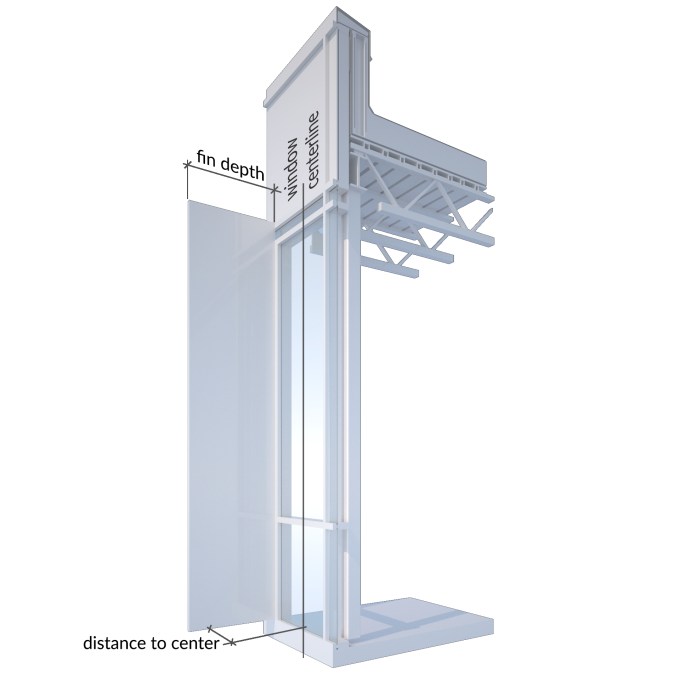As the fight against climate change heats up, Cove.Tool is looking to help tackle carbon emissions one building at a time.
The Atlanta-based startup provides an automated big-data platform that helps architects, engineers and contractors identify the most cost-effective ways to make buildings compliant with energy efficiency requirements. After raising an initial round earlier this year, the company completed the final close of a $750,000 seed round. Since the initial announcement of the round earlier this month, Urban Us, the early-stage fund focused on companies transforming city life, has joined the syndicate comprised of Tech Square Labs and Knoll Ventures.
Helping firms navigate a growing suite of energy standards and options

Cove.Tool software allows building designers and managers to plug in a variety of building conditions, energy options, and zoning specifications to get to the most cost-effective method of hitting building energy efficiency requirements (Cove.Tool Press Image / Cove.Tool / https://covetool.com).
In the US, the buildings we live and work in contribute more carbon emissions than any other sector. Governments across the country are now looking to improve energy consumption habits by implementing new building codes that set higher energy efficiency requirements for buildings.
However, figuring out the best ways to meet changing energy standards has become an increasingly difficult task for designers. For one, buildings are subject to differing federal, state and city codes that are all frequently updated and overlaid on one another. Therefore, the specific efficiency requirements for a building can be hard to understand, geographically unique and immensely variable from project to project.
Architects, engineers and contractors also have more options for managing energy consumption than ever before – equipped with tools like connected devices, real-time energy-management software and more-affordable renewable energy resources. And the effectiveness and cost of each resource are also impacted by variables distinct to each project and each location, such as local conditions, resource placement, and factors as specific as the amount of shade a building sees.
With designers and contractors facing countless resource combinations and weightings, Cove.Tool looks to make it easier to identify and implement the most cost-effective and efficient resource bundles that can be used to hit a building’s energy efficiency requirements.
Cove.Tool users begin by specifying a variety of project-specific inputs, which can include a vast amount of extremely granular detail around a building’s use, location, dimensions or otherwise. The software runs the inputs through a set of parametric energy models before spitting out the optimal resource combination under the set parameters.
For example, if a project is located on a site with heavy wind flow in a cold city, the platform might tell you to increase window size and spend on energy efficient wall installations, while reducing spending on HVAC systems. Along with its recommendations, Cove.Tool provides in-depth but fairly easy-to-understand graphical analyses that illustrate various aspects of a building’s energy performance under different scenarios and sensitivities.

Cove.Tool users can input granular project-specifics, such as shading from particular beams and facades, to get precise analyses around a building’s energy performance under different scenarios and sensitivities.
Democratizing building energy modeling
Traditionally, the design process for a building’s energy system can be quite painful for architecture and engineering firms.
An architect would send initial building designs to engineers, who then test out a variety of energy system scenarios over the course a few weeks. By the time the engineers are able to come back with an analysis, the architects have often made significant design changes, which then gets sent back to the engineers, forcing the energy plan to constantly be 1-to-3 months behind the rest of the building. This process can not only lead to less-efficient and more-expensive energy infrastructure, but the hectic back-and-forth can lead to longer project timelines, unexpected construction issues, delays and budget overruns.
Cove.Tool effectively looks to automate the process of “energy modeling.” The energy modeling looks to ease the pains of energy design in the same ways Building Information Modeling (BIM) has transformed architectural design and construction. Just as BIM creates predictive digital simulations that test all the design attributes of a project, energy modeling uses building specs, environmental conditions, and various other parameters to simulate a building’s energy efficiency, costs and footprint.
By using energy modeling, developers can optimize the design of the building’s energy system, adjust plans in real-time, and more effectively manage the construction of a building’s energy infrastructure. However, the expertise needed for energy modeling falls outside the comfort zones of many firms, who often have to outsource the task to expensive consultants.
The frustrations of energy system design and the complexities of energy modeling are ones the Cove.Tool team knows well. Patrick Chopson and Sandeep Ajuha, two of the company’s three co-founders, are former architects that worked as energy modeling consultants when they first began building out the Cove.Tool software.
After seeing their clients’ initial excitement over the ability to quickly analyze millions of combinations and instantly identify the ones that produce cost and energy savings, Patrick and Sandeep teamed up with CTO Daniel Chopson and focused full-time on building out a comprehensive automated solution that would allow firms to run energy modeling analysis without costly consultants, more quickly, and through an interface that would be easy enough for an architectural intern to use.
So far there seems to be serious demand for the product, with the company already boasting an impressive roster of customers that includes several of the country’s largest architecture firms, such as HGA, HKS and Cooper Carry. And the platform has delivered compelling results – for example, one residential developer was able to identify energy solutions that cost $2 million less than the building’s original model. With the funds from its seed round, Cove.Tool plans further enhance its sales effort while continuing to develop additional features for the platform.
Changing decision-making and fighting climate change
The value proposition Cove.Tool hopes to offer is clear – the company wants to make it easier, faster and cheaper for firms to use innovative design processes that help identify the most cost-effective and energy-efficient solutions for their buildings, all while reducing the risks of redesign, delay and budget overruns.
Longer-term, the company hopes that it can help the building industry move towards more innovative project processes and more informed decision-making while making a serious dent in the fight against emissions.
“We want to change the way decisions are made. We want decisions to move away from being just intuition to become more data-driven.” The co-founders told TechCrunch.
“Ultimately we want to help stop climate change one building at a time. Stopping climate change is such a huge undertaking but if we can change the behavior of buildings it can be a bit easier. Architects and engineers are working hard but they need help and we need to change.”


